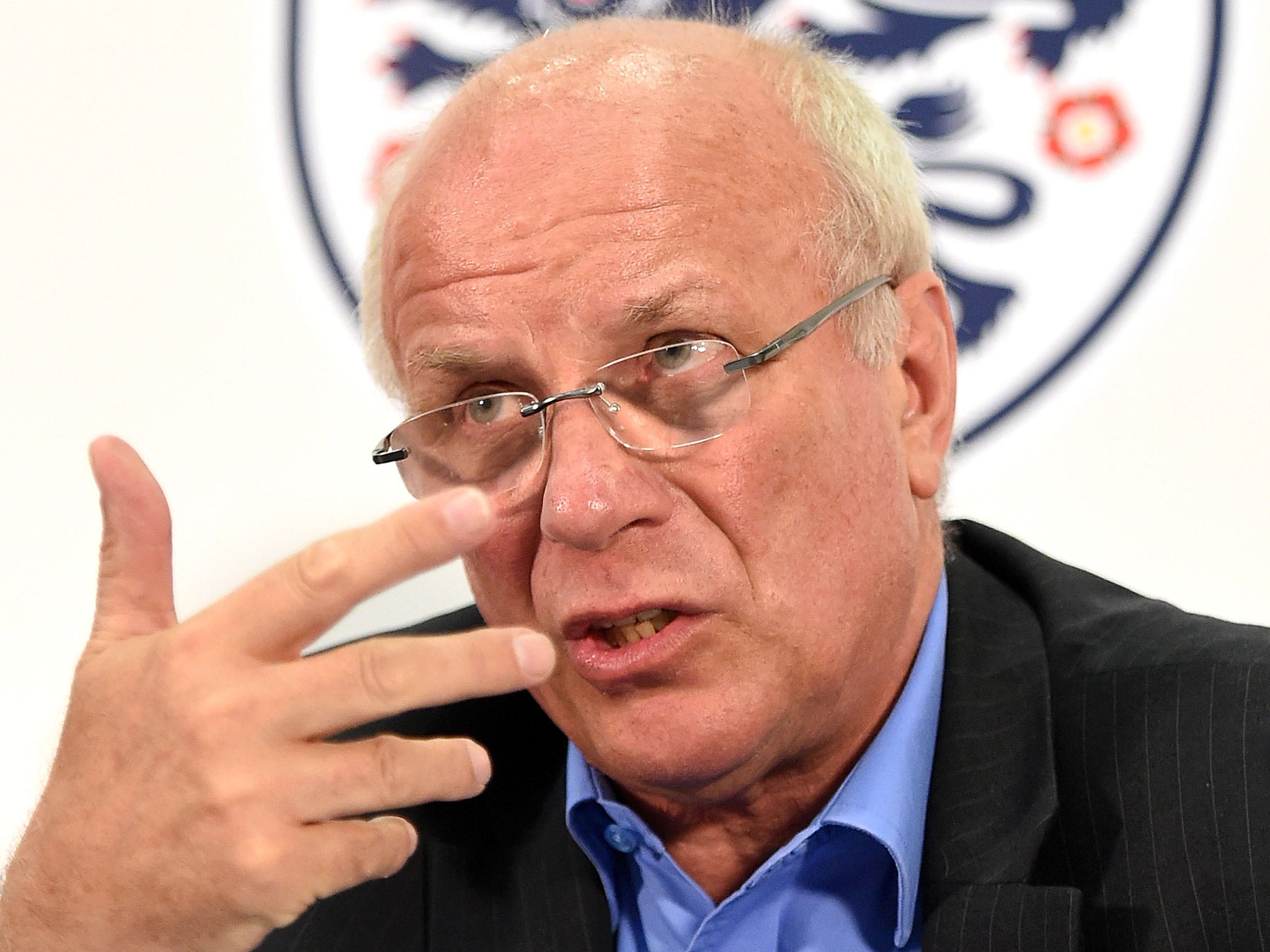FA intends to close work permit loophole to protect English talent
Exclusive: Chairman Greg Dyke has described the current appeal system as 'a bit of a farce'

Your support helps us to tell the story
From reproductive rights to climate change to Big Tech, The Independent is on the ground when the story is developing. Whether it's investigating the financials of Elon Musk's pro-Trump PAC or producing our latest documentary, 'The A Word', which shines a light on the American women fighting for reproductive rights, we know how important it is to parse out the facts from the messaging.
At such a critical moment in US history, we need reporters on the ground. Your donation allows us to keep sending journalists to speak to both sides of the story.
The Independent is trusted by Americans across the entire political spectrum. And unlike many other quality news outlets, we choose not to lock Americans out of our reporting and analysis with paywalls. We believe quality journalism should be available to everyone, paid for by those who can afford it.
Your support makes all the difference.The Football Association is determined that this month will be the last transfer window in which clubs will be able to use a discredited appeals process to sign the non-European Union players who, the governing body fears, block the progress of young English footballers into Premier League squads.
The proposal was part of Greg Dyke’s FA Commission report last year into the diminishing numbers of English footballers in the top flight and the FA chairman hopes to change the rules ahead of the summer transfer window so that clubs will no longer be able to go to appeal in order to gain Home Office work permits for players who do not meet the criteria.
Currently, the work permit requirement for players without an EU passport is that they have to be an international from a country ranked within Fifa’s top 70 and have played 75 per cent of their country’s international matches in the last two years. However, the biggest concern for Dyke has been the ease with which those who have failed to meet those criteria have been waved through in an appeals process run by the FA on behalf of the Home Office.
The latest player to sign via appeal has been the Croatia international Andrej Kramaric, whom Leicester City have now agreed a £9.5m deal to sign from HNK Rijeka in Croatia’s domestic league, after he was approved for a work permit at a Home Office hearing on Monday. The striker has been capped just four times by his country but the panel heard evidence from the Croatia national team coach, Niko Kovac, that he intends to use the player in the future and was satisfied he would be a worthy addition to the Premier League.
While Croatia is a new member of the EU its citizens are still subject to restrictions on working and a work permit is necessary for the country’s footballers to play in the Premier League. Chelsea had tried to sign Kramaric but the player was not interested in being loaned to Vitesse Arnhem, their partner club.

Dyke has described the current appeal system as “a bit of a farce”. He bemoaned the awarding of Home Office work permits to players whom the panel approved “because the manager shows up at appeal with a video saying, ‘He will be a good player’.”
Under the wording of FA regulations on permit hearings, the panel has to consider if “the player is of the highest calibre” and “able to contribute significantly to the development of the game at the top level in England”. In reality, the six-strong panels, made up of representatives from the FA and Professional Footballers’ Association, as well as former managers and players, wave through applications. The success rate at appeal is 79 per cent.
Under tougher new rules proposed by Dyke, the subjective panel hearings would be scrapped. The criteria would be changed with the threshold of international appearances brought down to 30 per cent, to allow for players from top nations like Brazil where the competition to play international football is that much greater. The player in question would have to play for a country ranked in the top 50 by Fifa. There would be an exemption for any player who cost more than £10m.
The £10m minimum would be brought in to stop the flow of the more mediocre players priced around £2m and £3m, who are regarded as chiefly responsible for blocking the progress of academy players into the first-team squad. It is hoped the changes would encourage clubs to focus their investment on fewer non-EU players of higher quality.
In the summer transfer window, West Bromwich Albion broke their transfer record to sign the Nigerian international Brown Ideye from Dynamo Kiev for £10m. His work permit was gained on appeal even though the player failed to make Nigeria’s World Cup squad. He has since scored just one Premier League goal. The problem for Dyke is that under his proposals the £10m fee would have been enough to earn the player a work permit.
Dyke's key proposals
* Subjective panel hearings will be scrapped
* International appearance threshold cut to 30 per cent
* Player would have to play for a country in Fifa’s top 50
* Exemptions for players costing over £10m
Join our commenting forum
Join thought-provoking conversations, follow other Independent readers and see their replies
Comments